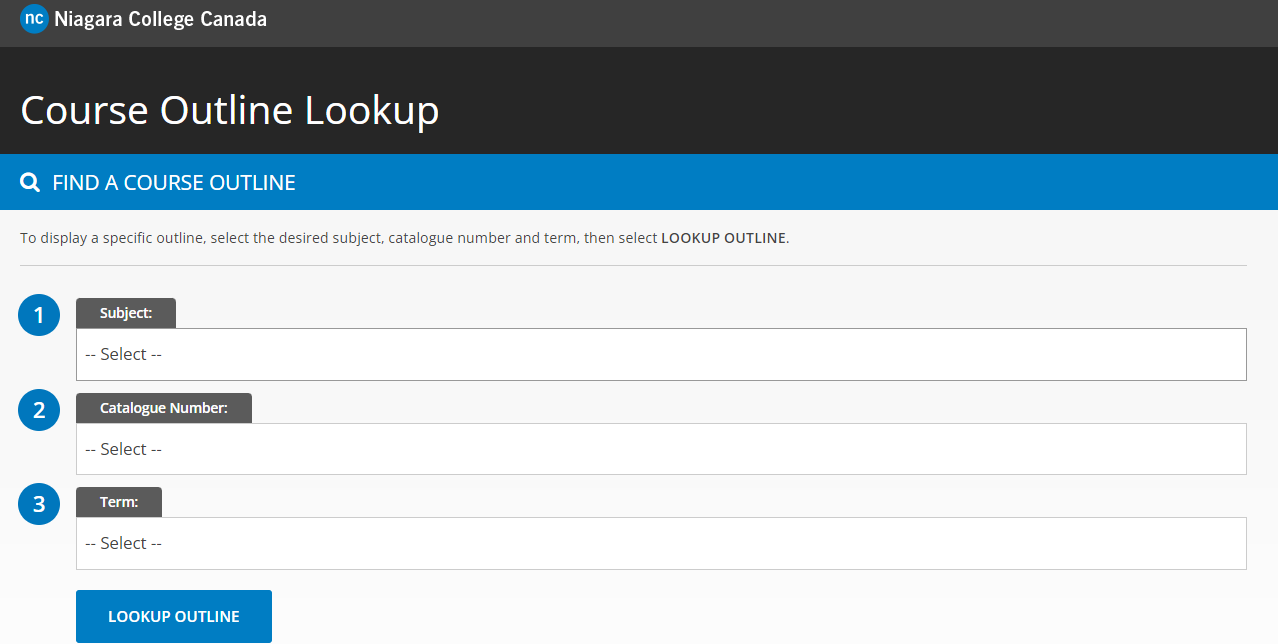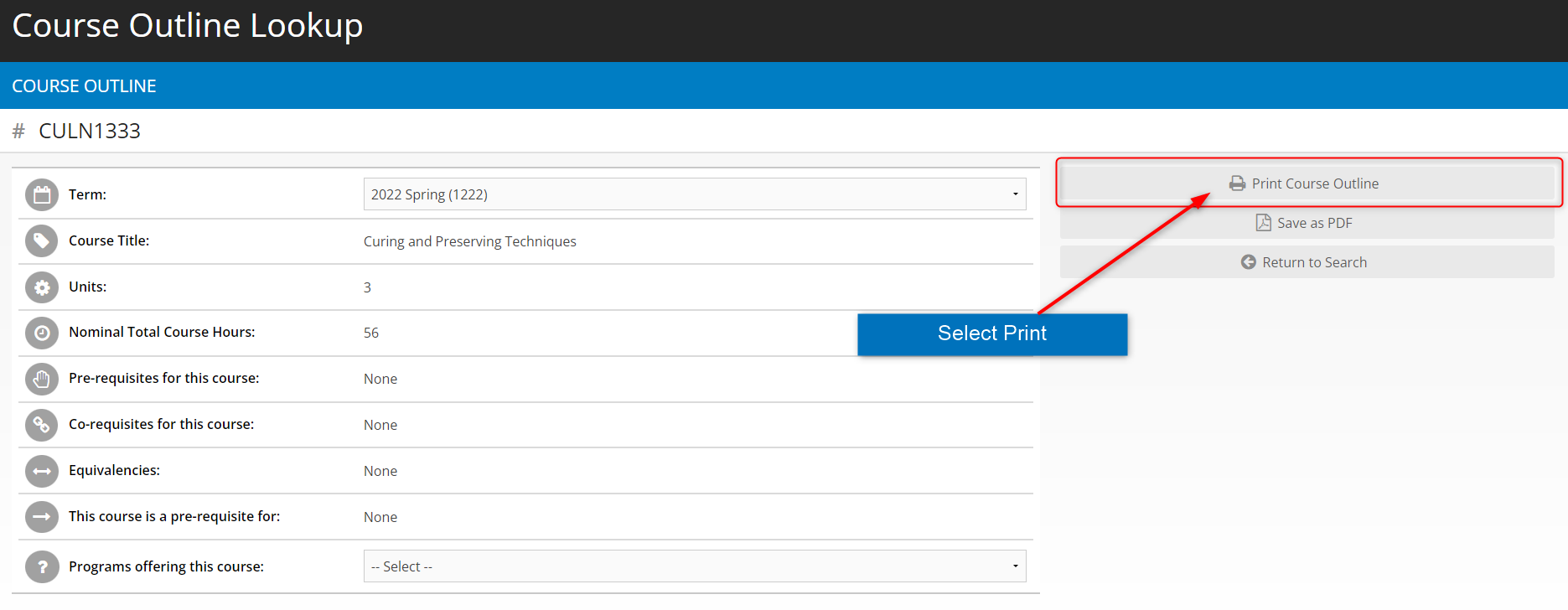Getting Started
Where do I find Niagara College Course Outlines?
For most courses, a course outline has been previously developed and shared among all faculty members teaching a specific course. Instructors can access the most up-to-date course outlines for all courses offered at Niagara College through the retrieve a course outline tool in the My Apps section of Blackboard.
Students, staff, and external stakeholders can also readily access all course outlines — including Vocational Learning Outcomes, Course Outcomes and Objectives — through the Course Outline Look-up page on Niagara College’s website.
What essential information is included in the Course Outline?
All course outlines at Niagara College contain the following standard course information:
- the course name.
- catalogue number.
- a short description.
- associated course outcomes and learning objectives.
- a breakdown of evaluation mechanisms.
Let’s take a quick tour of a sample course outline. Scroll through the interactive booklet below to familiarize yourself with each component of the course outline.
Additional course information is included in the course outlines located on the Course Outline Look-up webpage. Once you have selected the subject, course catalogue number, and term you will be directed to a page that summarizes the pertinent information auto-generated from academic logistics.
You will be given the options to either Print (1) or Save as a PDF (2).
Select Print to retrieve the most comprehensive version of the course outline; then save accordingly.
Developing a NEW Course?
If you are building a new course you can use the Course Outline Template to ensure that all required information is included. The creation of a new course outline or major revisions to an existing course outline entail a set of formal processes and procedures. For more information on the criteria, processes, and timelines for making major or minor modifications to course and program curricula, visit our Programs and Curriculum Change Process page.
A part of the MCU program standards; developed for a specific program of study; represent the vocationally specific knowledge, skills, attitudes, and experiences that a student must be able to reliably demonstrate at the end of a program.
Represent the knowledge, skills, attitudes, and experience that are taught and evaluated in a course
Describe what the students will know or be able to do by the end of the lesson; align with and further clarify the Learning Outcomes.


